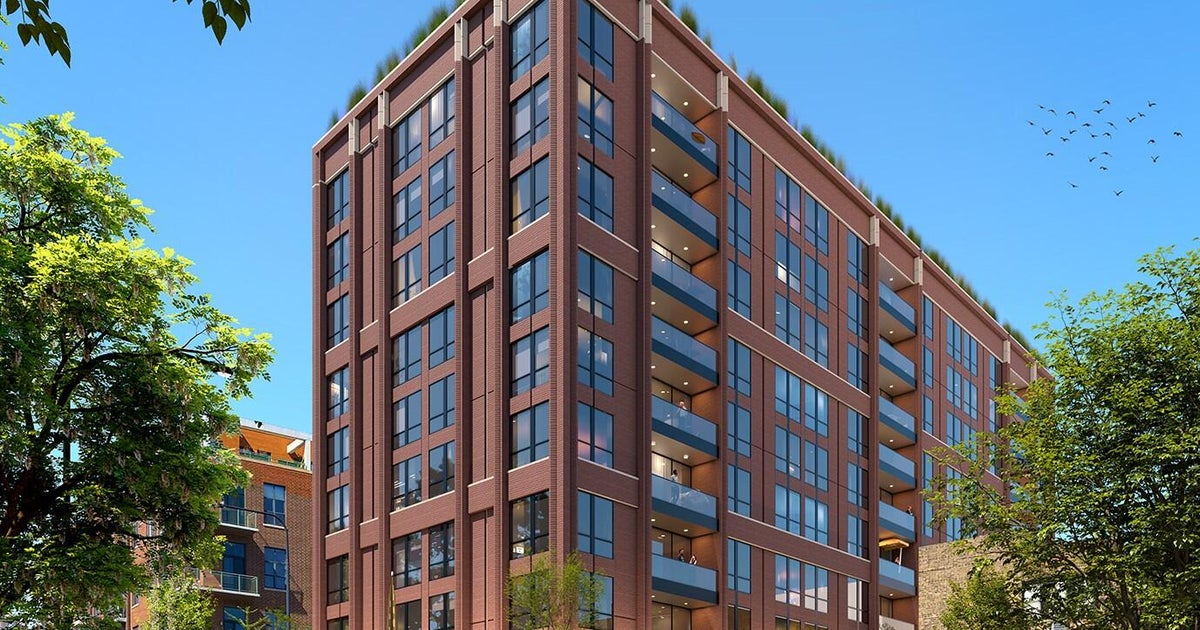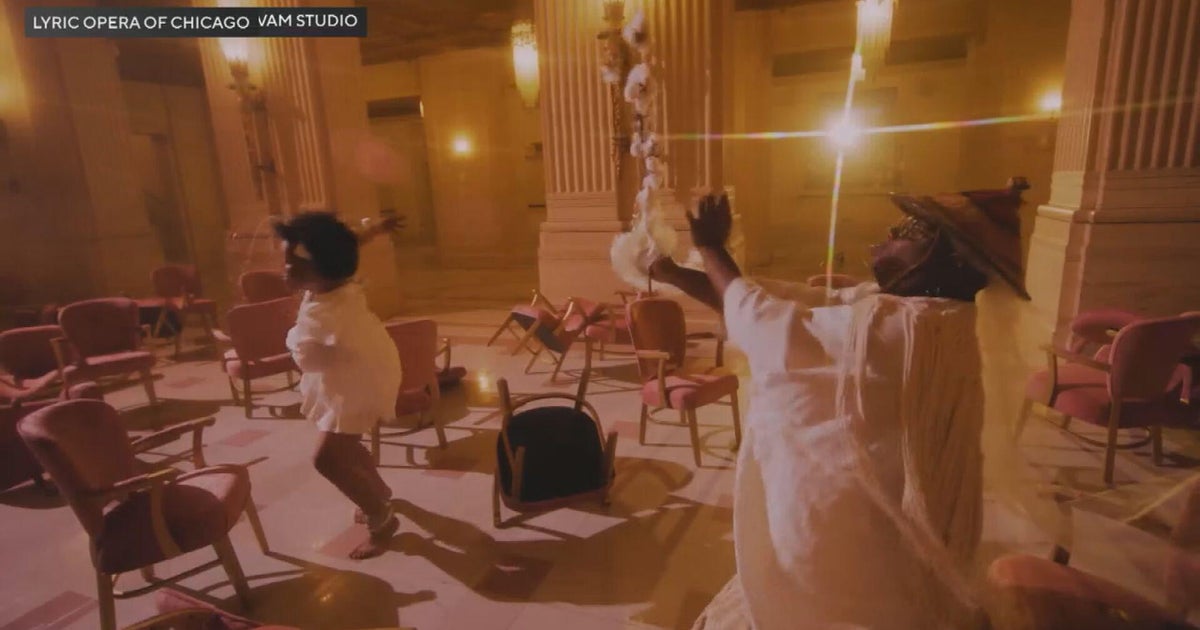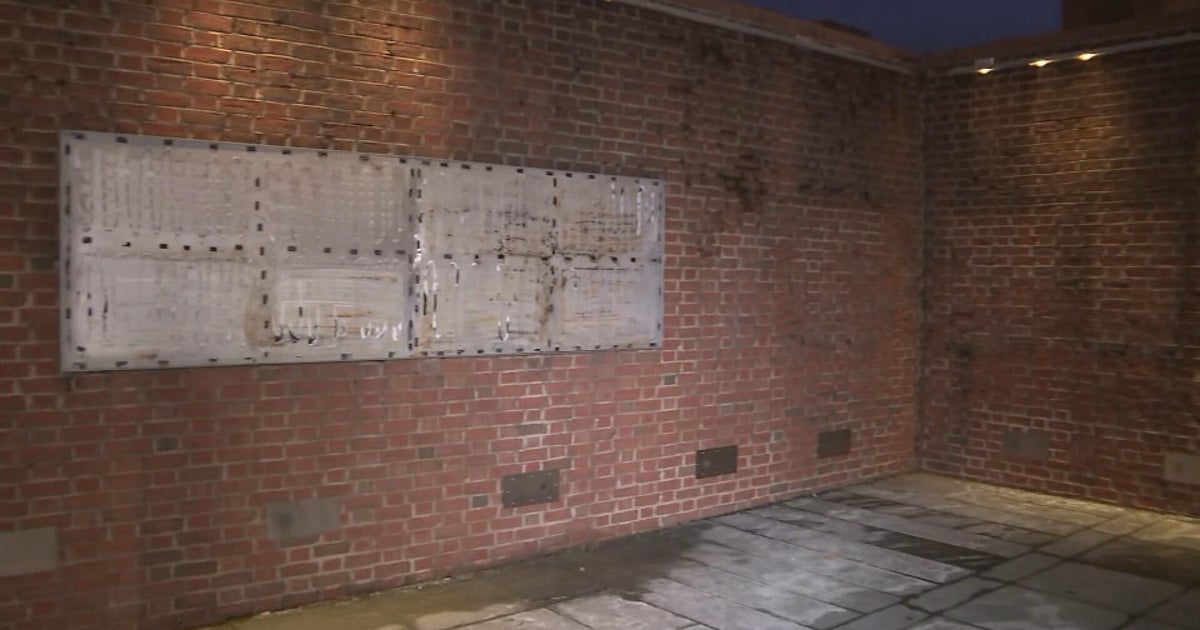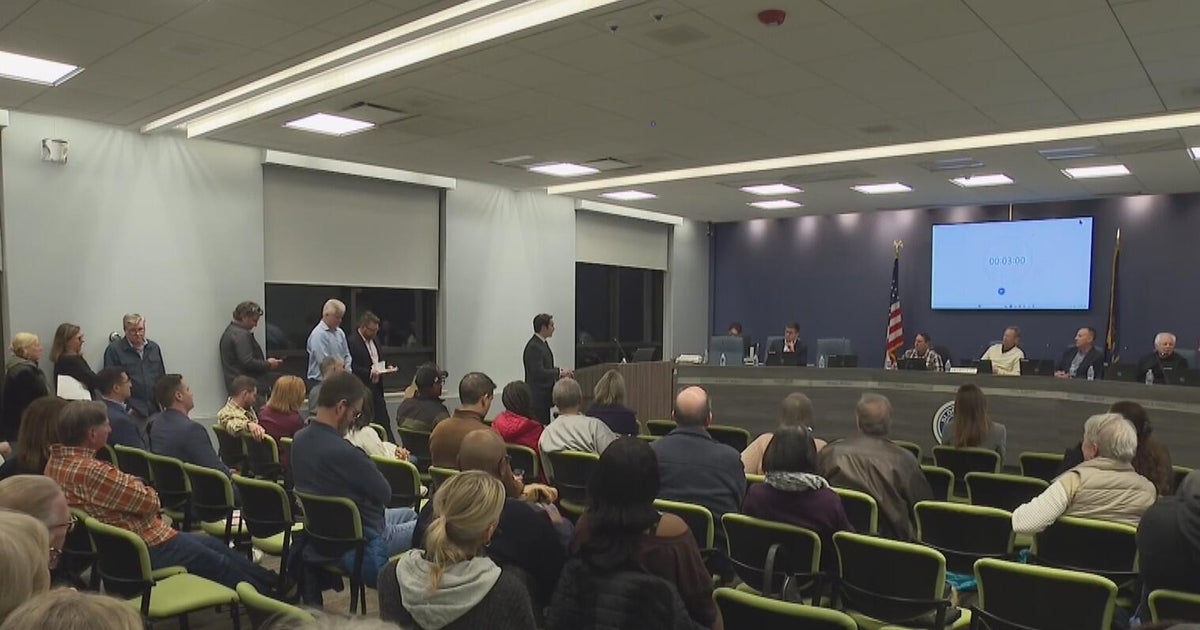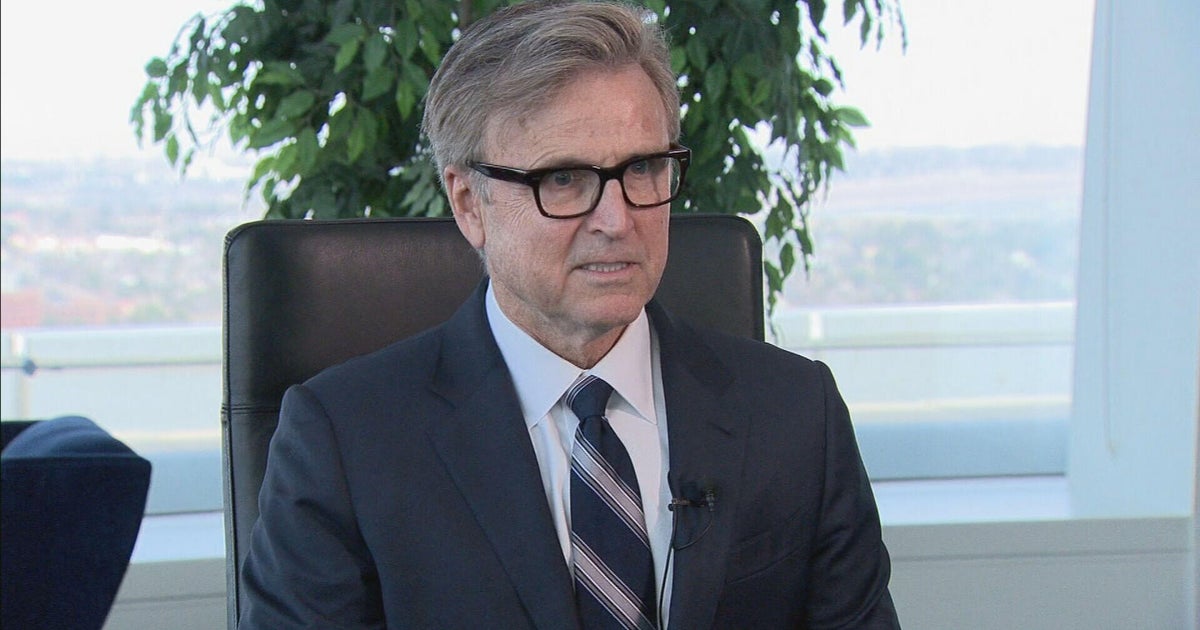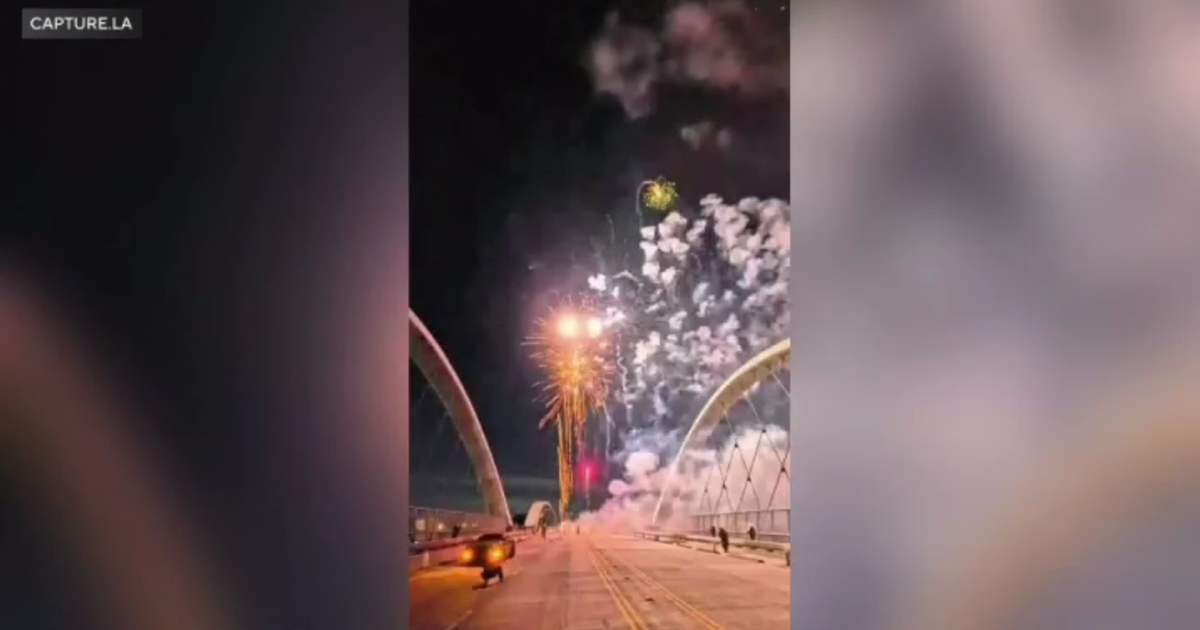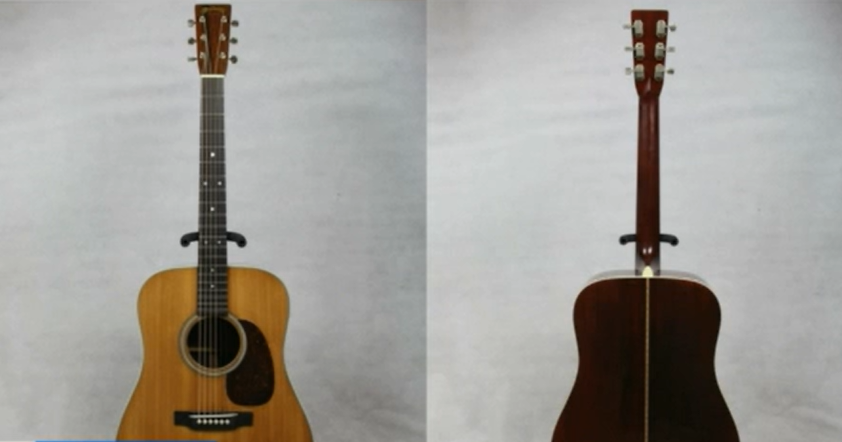Owner, caretaker hope to restore and reopen Chicago's Uptown Theatre in all its glory
CHICAGO (CBS) -- The Uptown Theatre opened in 1925 as a movie and Vaudeville house for the Balaban & Katz movie chain.
The massive venue at 4816 N. Broadway was designed by brothers Cornelius and George Rapp — who also designed the Chicago Theatre and many others. It was, and is, the largest freestanding theater in North America.
It had more than 4,400 seats, and more square footage than Radio City Music Hall in New York.
"Patrons who stepped past the Spanish Baroque Revival façade of the Uptown Theatre entered into the luxurious, six-story grand lobby felt like they were entering a palace," wrote the Chicago Architecture Center. "In fact, Rapp and Rapp wanted the 46,000-square-foot theater to imitate the palaces of Versailles or St. Petersburg, with statues, paintings and tapestries that were reproductions of the world's masterpieces."
In the early days, the Uptown featured floating clouds and twinkling ceiling lights, a Wurlitzer theater pipe organ, and even performances by full orchestras.
"Back in the day, they used to say, 'If the movie stinks, you can still enjoy the theater,'" said caretaker Dave Syfczak.
As tastes changed, the mission of the theater also changed. It became a concert venue — hosting performances by A-list acts.
The most recent act to take the stage, according to the theater's Facebook page, was the J. Geils Band — playing such classics both old and then-new as "Freeze-Frame," "Love Stinks, " "Musta Got Lost," and "Centerfold." That was on Dec. 27, 1981 — when Jane Byrne was mayor, Ronald Reagan had been president for less than a year, and Michael Jordan was playing basketball as a freshman in college at the University of North Carolina at Chapel Hill.
In the more than 42 years since then, the Uptown has sat vacant and shuttered. A few movies and music videos have been filmed inside, and the lobby hosted a dance party to raise money for an HIV/AIDS charity in the 1990s — but the auditorium has been idle, and the theater has otherwise remained locked up.
Attempts to restore and reopen the Uptown have been launched several times, but so far, nothing has yet worked out.
In that time, other old Chicago movie palaces — several of them — have closed and been torn down.
The 3,400-seat Granada in Rogers Park (1926) — which also later morphed into a concert venue – was torn down in 1990 after being abandoned. The Granada Center high-rise, occupied primarily by Loyola University, now stands on the site.
The 2,000-plus-seat Nortown in West Rogers Park or West Ridge (1931) was torn down in 2007 — some 17 years after closing and being put to other uses. The site is now occupied by a Wendy's.
But the Uptown Theatre has been a Chicago landmark since 1991, and remains standing — still a bracing sight just north of the popular Green Mill Lounge. The marquee has no lights on it, but still hangs overhead — with the Balaban & Katz name even remaining legible at the top.
Syfczak savors every day he spends inside — "even the dust," as he puts it.
"I find solace here and peace, and I just enjoy the beauty the luxury that was built into this spectacular theater," Syfczak said.
At first, Syfczak's work as a caretaker for the Uptown was a side job. He was a Chicago Police officer.
Now, the retired cop is the full-time caretaker at the Uptown. He provided CBS 2 with a rare tour inside — documenting all the changes, such as some drapes from a remodel in the 1940s.
"They designed it so that you forget your troubles," said Jerry Mickelson, chief executive officer of JAM Productions, who also joined the tour. "It's just a magical, perfect place to see a concert."
Mickelson and JAM Productions bought the Uptown at foreclosure in 2008, after booking bands at the theater from 1975 until 1981. He looked back on a long list of acts that performed there besides the J. Geils Band.
"Grateful Dead, Bruce Springsteen, Bob Marley, Frank Zappa, Genesis, Electric Light Orchestra, Prince, Rick James — everybody played," said Mickelson.
The theater was forced to close after years of neglect from past owners. The Chicago Architecture Center noted that the theater sustained major flood damage when pipes froze and burst in December 1981 — and that was it.
But Mickelson wants to see it restored and reopened to its 1925 glory, and he remains dedicated to that mission.
"This was built at a cost of $4 million," Mickelson said. "In today's dollars, that's probably about what it's going to cost, what we think, to renovate - which is about $140 million."
Mickelson said he is trying to reengage the city to talk about redevelopment.
"I'm putting all my time and effort into making it happen," he said.
Restoration would likely take at least two years.
"A building of this size and its design and its uniqueness needs to survive," Syfczak said.
Those caring for the theater dream of the day they can once again share the palace with the people.
"I'm wearing a tuxedo and I'm sitting in the front row on opening night," Syfczak said.





